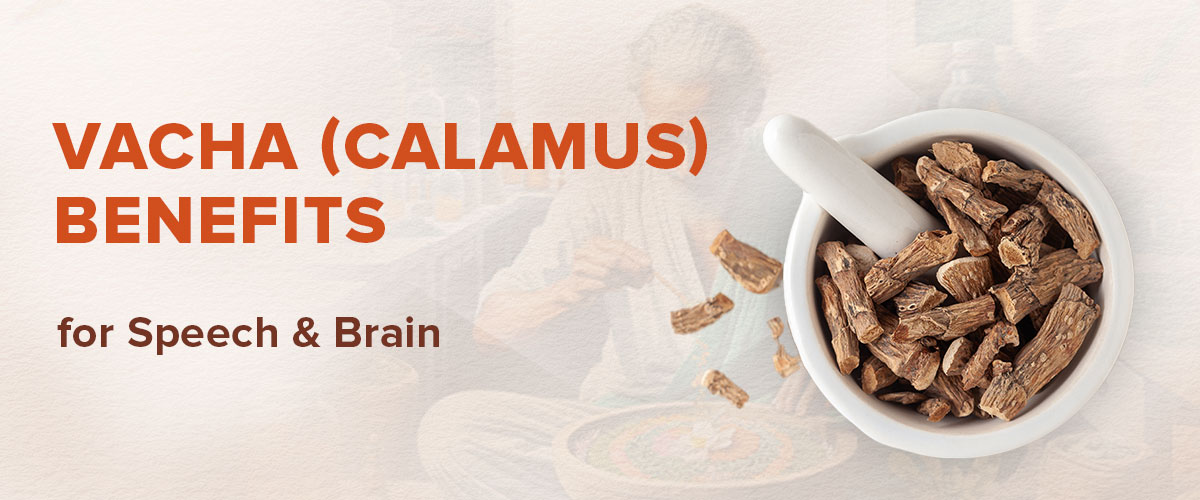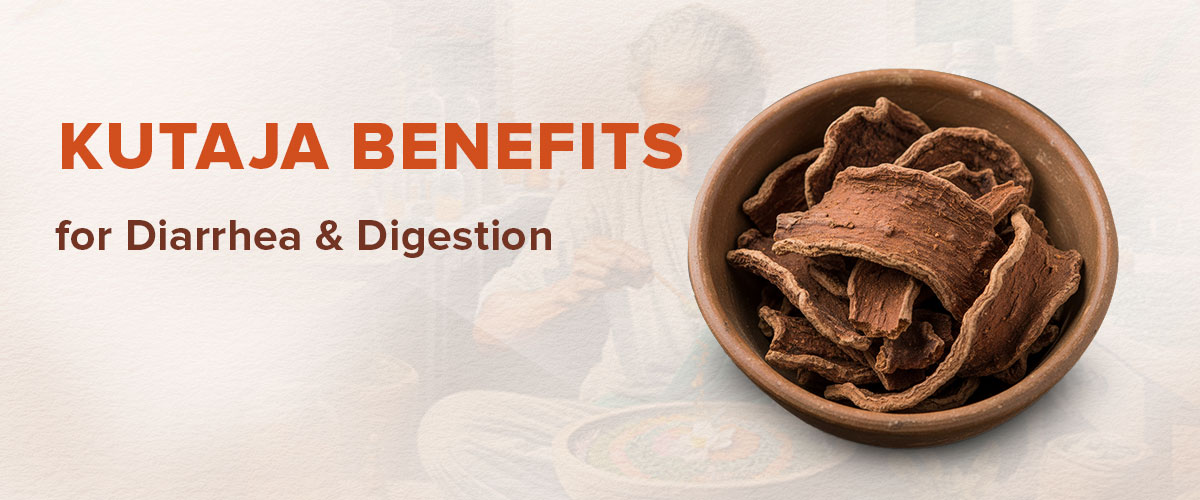Shatavari: Benefits, Uses, and Healing Properties

When you hear the name Shatavari, you might picture a green plant used in traditional wellness shakes. This herb is more than just that. It has thousands of years of Ayurvedic wisdom. Shatavari (Asparagus racemosus) has been known in Ayurveda for a long time as a rejuvenating tonic, especially for women.
Ayurvedic doctors used to recommend Shatavari for everything from balancing periods to improving overall health, making it a go-to "female-friendly" herb.
In a controlled study held over 30 days, mothers who took Shatavari saw their serum prolactin levels (lactation hormone) rise by 33%, while those who took a placebo only saw their levels rise by 10%. This is a difference of more than three times in this important lactation hormone.
In this blog, let’s explore more about Shatavari benefits and see how this simple herb connects old and new ways of staying healthy.
What is Shatavari & Its Ayurvedic Properties?
Ayurveda considers Shatavari a powerful rejuvenator. Let's look at Shatavari's main benefits in a simple way so you can see how it helps your body.
- Taste (Rasa): The taste of shatavari is sweet and a little bitter. The sweet taste makes it good for your body and helps to calm irritation, balances hormones, and encourages tissue growth, which is very important for women's health and overall strength.
- Qualities (Guna): Shatavari is considered heavy (Guru) and oily or greasy (Snigdha). This means it helps you get stronger and gain healthy weight, but if your digestion isn't good, it might feel a little too heavy. Its oily nature also helps keep your tissues and skin healthy and hydrated.
- Potency (Virya): This herb makes you feel cooler (Sheeta Virya). This is great if you have too much heat in your body, like from acidity, inflammation, or imbalance of hormones. It makes your body cooler and gives you a sense of calm, both in your body and mind.
- The Effect After Digestion (Vipaka): Shatavari leaves a sweet taste in the body after it is digested. This works to nourish and calm your body, which helps it heal and get its energy back.
Shatavari Benefits for Your Health
Shatavari is a useful herb that can help your body and mind in many ways, especially if you want to do so naturally. Let's look at the most important Shatavari benefits from both Ayurvedic and modern scientific points of view so you can see how it really helps you.
1. Helps Women Stay Healthy and Balances their Hormones
Ayurvedic View: Because it balances Vata and Pitta dosha, which can cause mood swings, cramps, and irregular periods, Shatavari is often called the "female-friendly herb." This is a Rasayana herb, which means it makes the reproductive system stronger and helps the body adjust to hormonal changes more easily.
Modern View: Studies show that Shatavari can help with PMS and keep hormones in balance. It might even help with regular menstrual cycles and make periods less painful.
2. Increases Breast Milk Production
Ayurvedic View: Shatavari is known for its Stanyajanana property, which means it helps women lactate. This herb can be a natural and safe choice if you're a new mother who is having trouble getting enough milk.
Modern View: Studies show that Shatavari can raise levels of prolactin, the hormone that makes milk. Some studies found that women who took Shatavari made up to 30% more milk than women who didn't.
3. Helps with Stress and Anxiety
Ayurvedic View: An imbalance in Vata dosha could be the reason you feel anxious or restless a lot. Shatavari calms the nervous system and helps you sleep better. It makes you feel stable and calm emotionally.
Modern View: Shatavari is an adaptogen, which means it helps your body deal with stress better. It can lower cortisol, which is the hormone that causes stress, and help you feel better naturally.
4. Keeps your Digestive System Healthy
Ayurvedic View: Shatavari helps lower extra heat and acidity in the stomach because it cools and calms the body. It also cures peptic ulcers and reduces stomach pain.
Modern View: Scientific studies show that Shatavari can help prevent and heal ulcers by increasing the amount of protective mucus in the stomach. It also makes enzymes work better, which makes digestion easier.
5. Boosts General Health and Immunity
Ayurvedic View: Shatavari is a strong Rasayana, which means it makes your body stronger and younger. It helps boost your energy, immunity, and overall health.
Modern View: Shatavari helps your body fight infections and stay energetic because it has anti-inflammatory and antioxidant properties.
Shatavari for Specific Health Conditions
Shatavari is good for more than just general health; it can also help with some specific health problems. Here's how it might help you with certain health problems.
Shatavari for Thyroid Problems
Shatavari may help if your thyroid isn't working right, especially if you have hypothyroidism. Ayurveda says that herbs that balance hormones and give you more energy can help your thyroid indirectly, even though they aren't thyroid medicines. As part of a larger Ayurvedic approach, Shatavari may help your thyroid health because it boosts stamina, mood, and hormonal balance.
Shatavari for Diabetes and High Blood Sugar
It can be hard to keep your blood sugar levels in check as you grow older. Shatavari can help by lowering the amount of sugar that your body absorbs from food and helping with insulin resistance.
Shatavari for Alcohol Withdrawal
It can be hard on your body and mind to try to quit drinking. Shatavari is said to have adaptogenic properties, which means it helps your body deal with stress. Some studies show that it may help with withdrawal symptoms like mood swings, irritability, and restlessness, giving you natural emotional support as you recover.
Shatavari for Kidney Stones
Shatavari's mild diuretic effect can help if you are struggling with kidney stones or want to avoid getting them. It helps urine flow better and may help stop stones from forming. When combined with a healthy diet and plenty of water, this is good for the long-term health of your kidneys.
Who Should Use Shatavari?
Shatavari can be used by people of all ages and genders. Because it has so many benefits, it can be used by people at every stage of life. Let's look at who can use it and why.
Shatavari for Women
Shatavari can help you stay healthy every day if you're a woman. It helps keep your hormones in balance during menopause, regulates your menstrual cycle, and eases PMS symptoms. If you're a new mom, it can help you make more breast milk in a natural and gentle way. Ayurveda knows that it is good for the reproductive system, so it is good for women who want to get pregnant or are having trouble getting pregnant.
Shatavari for Kids
Without proper Ayurvedic advice, Shatavari is not usually safe for very young children. In some Ayurvedic recipes, though, it is used in small amounts to boost the immune system and digestion in older kids or teens, especially those who are weak or underweight. Always talk to a Jiva certified Ayurvedic practitioner before giving it to your child.
Shatavari for Seniors and Older Adults
Shatavari may help older adults with their energy, digestion, and mental clarity. It helps the body heal, boosts the immune system, and calms the mind. Shatavari's sweet and cooling nature can help with dryness, tiredness, and weak digestion, which are common problems for seniors.
Can Shatavari Be Taken with Other Medicines?
If you already take other medicines, you might be wondering if it's safe to add Shatavari to your routine. Most people can tolerate Shatavari, but there are a few things you should keep in mind.
Because Shatavari has a mild diuretic effect, it may interfere with water pills or medications that affect your kidney function. It could also affect lithium-based drugs, which would make it harder for your body to get rid of the medicine. You should be extra careful if you take heart medications or have problems with your kidneys or liver.
Shatavari may also lower blood sugar, so if you take diabetes medicines, you should keep an eye on your levels to make sure they don't drop too quickly.
What should you do? Before mixing herbs with modern medicines, you should always talk to a Jiva Ayurveda expert.
Is Shatavari Safe? Who Should Avoid It?
When used correctly, shatavari is usually safe. But not everyone can use it, just like any other natural remedy.
Possible Side Effects of Shatavari
- Swelling
- Loose motions
- Rashes on the skin
- Sleepiness
These are more likely to happen if you take a lot of them or if your digestion is already weak. Because Shatavari is heavy (Guru in Ayurveda), it might take a while to digest.
Also avoid Shatavari, if you have been diagnosed with autoimmune diseases such as lupus or rheumatoid arthritis.
To get the best results and feel safe, always talk to a Jiva-certified Ayurvedic expert before adding Shatavari to your daily routine.
Shatavari vs Other Ayurvedic Herbs
There are many Ayurvedic herbs known for their nourishing and hormone-supportive effects. But each one works a little differently. Let us understand how:
Shatavari vs. Ashwagandha
|
Feature |
Shatavari |
Ashwagandha |
|
Best Use |
Women’s health, lactation, hormone balance |
Stress relief, strength, male fertility |
|
Nature |
Cooling (Sheeta) |
Heating (Ushna) |
|
Effect on Mind |
Calms emotions, promotes emotional stability |
Reduces stress and anxiety, improves focus |
|
Effect on Body |
Nourishing, moistening, helps weight gain |
Energising, muscle-building |
|
Hormonal Support |
Especially for women |
Especially for men |
Shatavari vs. Licorice (Yashtimadhu)
|
Feature |
Shatavari |
Licorice (Yashtimadhu) |
|
Best Use |
Reproductive health, digestion, lactation |
Throat soothing, ulcers, fatigue |
|
Nature |
Cooling (Sheeta) |
Cooling (Sheeta) |
|
Effect on Mind |
Calming and grounding |
Uplifting and mildly energising |
|
Effect on Body |
Builds strength and nourishment |
Reduces inflammation, heals mucous membranes |
|
Hormonal Support |
Promotes balance in women |
Supports cortisol regulation |
Discover What Shatavari Can Do for You
If you’re someone who’s looking for natural ways to feel stronger, calmer, and more balanced, Shatavari might be the right herb for you. This one herb gently but deeply helps your body with everything from easing menstrual cramps to boosting your digestion and immunity. And the best part? Ayurveda has trusted it for thousands of years, and now even modern science agrees with how good it is.
But keep in mind that even natural remedies need the right guidance. That's why it's important to talk to a Jiva certified expert first. For personalised advice on any health concern you may be facing, call our Jiva experts today at 0129-4264323.
FAQs
What do people use Shatavari for?
Shatavari is mostly used to help women's health. It helps balance hormones, increases breast milk production, and lessens the painful symptoms of menopause or irregular menstruation.
What happens if you take Shatavari every day?
Over time, taking the right amount of Shatavari every day may help your digestion, your immune system, your emotional stability, and your reproductive health.
How do you get the most out of Shatavari?
You can mix ¼ to ½ teaspoon of Shatavari powder with milk or honey and drink it after meals. If you have special needs, like PMS or breastfeeding, follow the dose that a Jiva expert suggests you.
Which hormone does Shatavari help?
Shatavari raises the level of prolactin, which is the hormone that helps produce breast milk. It might also help women keep their oestrogen levels in check.
Is it okay for men to take Shatavari?
Yes, men can use Shatavari. It helps raise testosterone levels, boost energy, and support overall strength and digestion.



 Prev
Prev





























